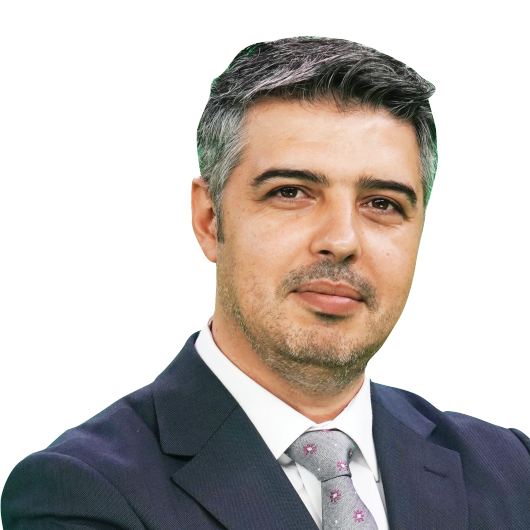Before the Central Bank raised the policy interest rate to 35%, it was thought that this level would be sufficient. When the interest rate actually reached 35%, the expectation shifted to 45% when it was seen that the central bank's foreign exchange reserves stopped growing.
Then this expectation came true. The Central Bank raised the policy interest rate to 45%. From that moment on, the market gained quite a bit of foresight. The parameters settled somewhere among the actors in the economy. Even a monetary policy board meeting was held without touching the interest rate.
Then, from within the economic management, came a confusing assessment regarding year-end exchange rate expectations by the banks. The market was still very sensitive, so it became immediately nervous.
Then came the Central Bank's inflation report presentation meeting. But it didn't unfold as it should have. Even if what was said wasn't said, it would have been fine. Even if unanswered questions weren't answered, it would have been fine. But it happened. The phrase "the link is broken" came, sweeping through like a buffalo out of control, trampling the steppes, stirring up dust, then left like an abandoned beast in the middle.
Thus, the necessity of not using the past tense with -miş in economic management was once again understood. When discussing economic issues, it is preferred to use sentences in the broad present tense. If an evaluation about the past is to be made, which is unnecessary; still, it is better to use the past tense with -di when needed.
In short, the phrase "the link is broken" had an effect in the market similar to the phrase "the piston is down." You may recall the incident where, in the widely shared footage, after making eye contact with the passengers in Sakarya, a minibus driver said "the piston is down," and suddenly all the passengers panicked and abandoned the minibus they were in.
Just like in that incident, the phrase "the link is broken" initiated an unjust escape from the Turkish Lira in the market.
Or rather, the confusing messages one after another from individuals in economic management provided manipulators with the opportunity they were looking for.
Their sole purpose, acting as if Türkiye were to sign a standby agreement with the IMF, these manipulators aim to press all the buttons to confront the economy with a currency shock. They played their roles and seized the opportunity to empty the TL minibus.
So, why did they adopt this goal and want to hand Türkiye over to the IMF? First and foremost, there is a result they want to achieve on the road to the IMF. They believe that showing the economy in the worst possible condition would be functional in the reelection of a municipal mayor who does not deserve to be reelected based on their past performance. If successful in their thoughts and endeavors, they want to force an early election to prevent Türkiye from being confronted with a 4-year period without elections and to erase Erdogan from Türkiye's future.
But if they succeed, their real lofty goal is to force Türkiye into the IMF and erase Erdogan's name from where it rightfully belongs in history.
Manipulators really know what they want to achieve. Let those who do not know realize it. Whether they or the Turkish nation fall into the fire they set, we will see, but as a precaution, the economic management changed its communication strategy. Everyone was silenced, and the responsibility was assumed by Minister Şimşek. He did well. They attacked him even for fulfilling the communication needs of the economy.
But in the end, due to the environment that remained indifferent to the manipulators, the Central Bank was forced to increase the policy interest rate by 500 basis points. There are indeed economic justifications behind this interest rate hike. I have repeatedly written about what these are from different angles. I would like to remind you again, while it may be believed according to orthodoxy that if the Central Bank responds to the Fed's interest rate cut with an interest rate hike, it would be super smart.
What I am trying to say is; perhaps there were economic justifications for the last interest rate hike, but the problems in market communication, not these justifications, were effective in determining the intensity of the increase. In other words, it was decided how many points the increase would be based on market politics. The lack of a relationship between the increase and previous increases shows this.
In fact, the most important problem of economic management was that the Central Bank could not determine a target interest rate level and create an interest rate hike cycle strategy. This absence, which caused ambiguity, already fed economic actors to manipulators in an unpredictable manner. Even by manipulators, this absence was claimed to be due to ambiguity and used.
Why I express it this way can be understood from these numbers; the first increase in the interest rate hike cycle was 650 basis points, then 250 basis points came, then 750, then 500, and then another 500. Thus, by October 2023, the policy rate was raised from 8.5%




















